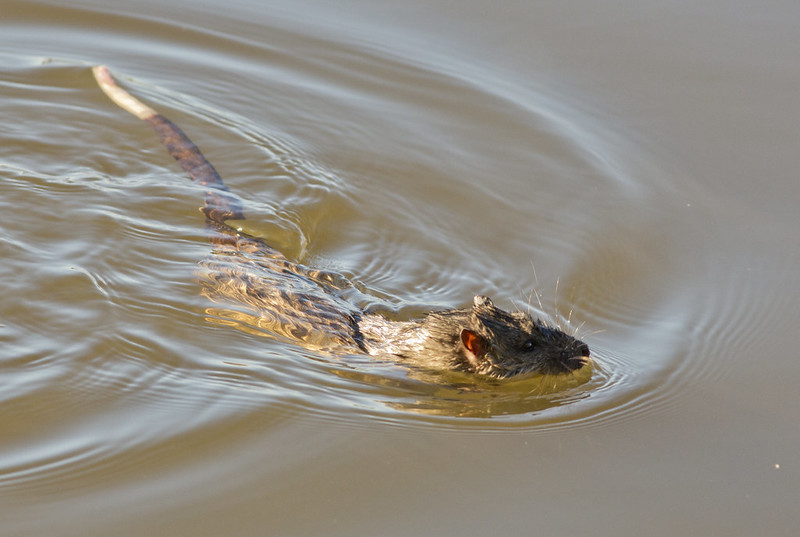Further development planned by the Brisbane City Council around Rocky Waterholes Creek, which flows through Moorooka and Salisbury, could threaten local populations of rakali, residents fear.

Rakali were once hunted for their soft, water-repellent fur and were considered a nuisance animal for destroying irrigation equipment and fishing nets on creek banks. Image: Judith Deland/Flickr.
Unlike most rodents, rakali spend much of their time in or near the water. Increased housing density around creeks, which restricts water run-off and inevitably increases localised pollution, could reduce their numbers.
“The rakali is a special Australian species,” says Wildlife Queensland PlatypusWatch Project Officer, Tamielle Brunt.
“Like the platypus, it is a semi-aquatic mammal that relies on freshwater waterways for food and shelter. This lifestyle means the rakali is threatened by encroaching urbanisation around waterways and the suite of impacts that follow. Freshwater systems are under a lot of pressure. People power is crucial to preventing further unsustainable development in these sensitive environmental areas. Your local backyard and the native species that live there need your voice to help protect their homes.”
Public consultation on the plan is open until 26 July, so residents and nature lovers are encouraged to raise their concerns.
You can help rakali by:
- voicing your opinion on the Brisbane City Council’s draft neighbourhood plan for the suburbs of Moorooka, Salisbury and Nathan by contacting Brisbane City Council Deputy Mayor and City Planning Chair, Krista Adams
- reporting your wildlife sightings to national databases like iNaturalist or the Atlas of Living Australia
- cleaning up rubbish or litter around local waterways
- not restricting the flow of waterways
- not using opera house nets
- cutting any circular rings that might entangle wildlife
- restoring riparian or creek-side native habitat.
To learn more about rakali, attend the Rakali Festival at Carina on 31 July 2021 for a day of offset planting.
Related articles and information:
- Aquatic animals seeking refuge at risk of entrapment
- It’s time to demand action on climate change biodiversity crisis
